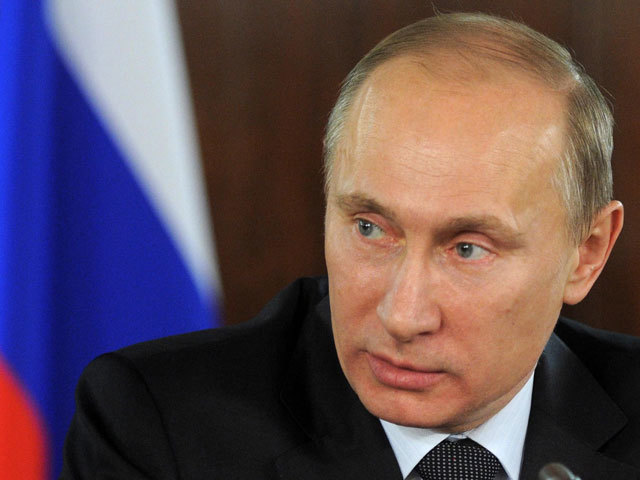
Last year, I wrote about how EU sanctions restrictions were starting to bite on the industry, particularly in light of newly implemented restrictions against Russia, Crimea and Ukraine introduced throughout 2014.
These rules have seen an increase in sector-specific sanctions, targeting particular oil and gas activities (deepwater, Arctic and shale projects in Russia in particular), specific types of oil-related technologies and associated services, including drilling, well-testing and the supply of specialised floating vessels.
With ongoing amendments and additions to the restrictions through to the end of 2014, it can be fairly assumed that sanctions issues will continue to be a common concern for business in the new year.
The real challenge facing the industry is how companies operating in a global industry, in joint-venture projects and in complex supply chains, and with operations and transactions in high-risk jurisdictions can ensure compliance with continually evolving sanctions restrictions.
Practical scenarios rarely fall neatly within the wording of the European legislative rules, and with little in terms of guidance, risk-assessment tends to fall to the commercial decision-makers in business.
Generally, sanctions regulations do not impose specific policy and procedure requirements. Rather, sanctions legislation criminalises sanctions violations.
It is always for individual businesses to assess their level of risk and decide on an appropriate compliance approach. In a recently issued information note, the Government’s Department for Business, Innovation and Skills (BIS) stated that it expects all UK companies to comply fully with sanctions, and that the Government is committed to helping businesses comply.
However, the document also notes that while the Government can give general advice and guidance about the scope of sanctions and how to comply with them, it will not give legal advice and that companies requiring legal advice should make their own arrangements.
How can companies ensure they are sanctions-compliant?
The most frequently raised questions with lawyers therefore tend to focus on how businesses can make sure they have robust compliance mechanisms in place that keep daily operations within the bounds of what is permissible.
The key issue to ensuring this compliance is having appropriate due diligence and screening measures in place relating to customers, counterparties, partners, and suppliers.
Businesses are not required by law to use specialised software or services, but overall companies must ensure that their combined approach to sanctions diligence and compliance is effective.
In undertaking due diligence screening, companies in the industry should consider the risks associated with some key areas:
The risk in your supply chain:
Most sanctions restrictions will capture transactions that result in an “indirect” benefit to a sanctioned party where there is reasonable cause to suspect that onward supply.
Due diligence in supply chains must therefore extend to the ultimate end-user. In some supply chains, contractual protections will be necessary where the end-user is not visible.
The risks in the corporate group of your counterparties:
Even if you have established that your counterparty is not a sanctioned company, sanctions restrictions will continue to apply if any of that entity’s key shareholders are sanctioned.
Restrictions may also apply where sanctions are in effect against one member of a corporate group. You must make full use of the information available in the public domain to ascertain corporate structures.
The risk associated with your joint venture partners:
Entering into a joint venture with another party inevitably results in a higher degree of business risk.
We have seen instances of oil and gas JVs across Europe that have ground to a halt as a result of restrictions against one JV partner in light of the Russian sanctions rules.
These risks should be borne in mind when entering into new arrangements and current arrangements should be kept under close scrutiny.
Sanctions compliance is an ongoing commitment – the rules are constantly changing and internal mechanisms must be responsive to this. It is not enough to simply screen parties at the outset of a transaction. Frontline staff must also be appropriately trained to identify red flags and escalate concerns throughout the duration of operations.
What’s at stake?
The importance of robust sanctions compliance policies cannot be over-stated. The penalties for non-compliance are high, both in criminal and reputational terms.
November saw the enforcement of penalties at the Old Bailey in relation to a breach of related export control restrictions for exporting unlicensed products to Iran.
A businessman, who was jailed for 30 months last March, was ordered to pay £68,000 or serve a further 15 months in jail. The company, specialising in petrochemical manufacturing, was also ordered to pay over £1million in criminal profits in addition to the previous fine imposed on it earlier in the year.
Courts in the UK do tend to take a strong view in relation to upholding the importance of the sanctions rules.
At the end of last year, a UK court rejected an application for interim relief by Russian energy company Rosneft. The company had argued that the UK secondary legislation criminalising Russian sanctions violations breached the principle of legal certainty under the European Convention on Human Rights.
The court found that granting such relief would be inappropriate taking into account the interests of the EU and would inevitably risk lessening the effectiveness of the EU sanctions.
A full hearing will take place in January and a separate action for annulment of various provisions of the Russian sanctions has been lodged with the General Court of the EU.
Penelope Warne is senior partner and head of energy at international law firm CMS Cameron McKenna
